Water Heater Replacement – Georgetown, TX
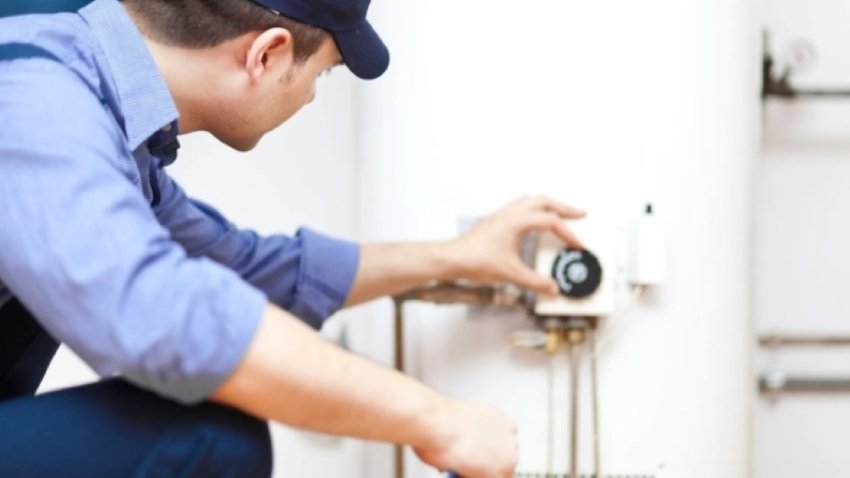
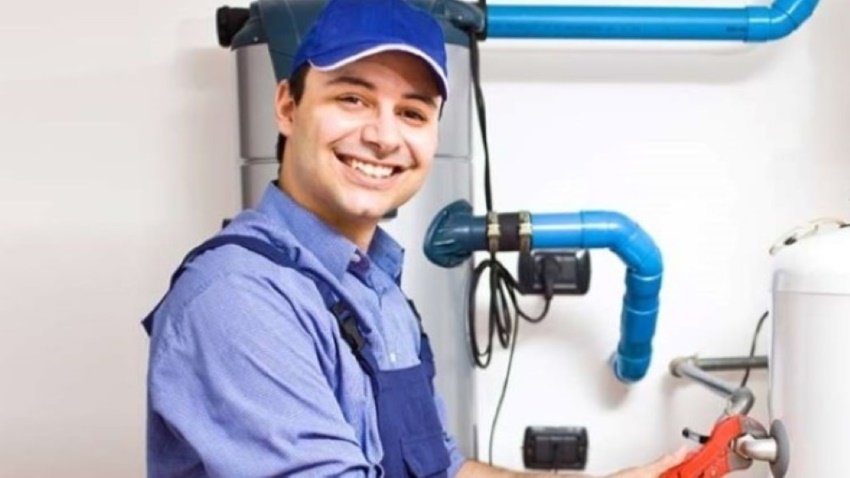
CALL US NOW (512) 316-0246
Choosing the Right Water Heater Replacement
When it comes to selecting a new water heater, several factors come into play to ensure optimal efficiency and performance. This topic delves into the considerations homeowners should keep in mind when choosing a water heater replacement, aiming for energy efficiency, reliability, and long-term cost-effectiveness. Here’s an outline to explore this subject comprehensively:
1. Introduction to Water Heater Replacement:
– Provide an overview of the importance of selecting the right water heater replacement, emphasizing its impact on energy consumption, utility bills, and overall comfort.
– Introduce the key factors homeowners should consider to ensure optimal efficiency and performance.
2. Assessment of Hot Water Needs:
– Discuss the household’s hot water usage patterns and demand to determine the appropriate size and capacity of the new water heater.
– Consider factors such as the number of occupants, peak usage times, and simultaneous hot water requirements for showers, appliances, and faucets.
3. Energy Efficiency Ratings:
– Explain the significance of energy efficiency ratings, such as Energy Factor (EF) and Uniform Energy Factor (UEF), in evaluating the efficiency of water heaters.
– Compare different types of water heaters (e.g., tankless, storage tank, heat pump) in terms of their energy efficiency and operational costs.
4. Fuel Source Options:
– Explore the available fuel sources for water heaters, including electricity, natural gas, propane, and solar energy.
– Discuss the pros and cons of each fuel type in terms of cost, availability, environmental impact, and compatibility with existing infrastructure.
5. Type of Water Heater:
– Compare different types of water heaters, such as traditional storage tank, tankless (on-demand), heat pump, and hybrid models.
– Highlight the features, benefits, and limitations of each type, considering factors like space constraints, installation requirements, and hot water delivery rate.
6. Installation Location and Space Constraints:
– Evaluate the available installation space and location constraints to determine the most suitable water heater replacement.
– Discuss considerations such as clearance requirements, ventilation needs, access for maintenance, and compatibility with existing plumbing connections.
7. Long-Term Cost Analysis:
– Conduct a long-term cost analysis to compare the initial purchase price, installation costs, and ongoing operational expenses (e.g., energy bills, maintenance) of different water heater options.
– Consider factors such as energy efficiency, durability, warranty coverage, and potential incentives or rebates for energy-efficient upgrades.
8. Brand Reputation and Warranty Coverage:
– Research the reputation and reliability of different water heater brands, considering factors like product quality, customer reviews, and warranty coverage.
– Evaluate the length and terms of the manufacturer’s warranty, as well as the availability of extended warranty options for added peace of mind.
9. Local Building Codes and Regulations:
– Familiarize yourself with local building codes, regulations, and permit requirements related to water heater installation and replacement.
– Ensure compliance with safety standards, ventilation requirements, seismic bracing, and other code provisions to avoid potential issues and ensure safety.
10. Consultation with Professional Plumbers Near Me:
– Seek guidance and recommendations from licensed local plumbers professionals or contractors with experience in water heater installation and replacement.
– Tap into their expertise to assess your specific needs, evaluate options, and ensure a seamless installation process that meets industry standards and best practices.
By exploring “Choosing the Right Water Heater Replacement” through these dimensions, homeowners can make informed decisions to select a water heater that offers optimal efficiency, reliability, and performance tailored to their needs and preferences.
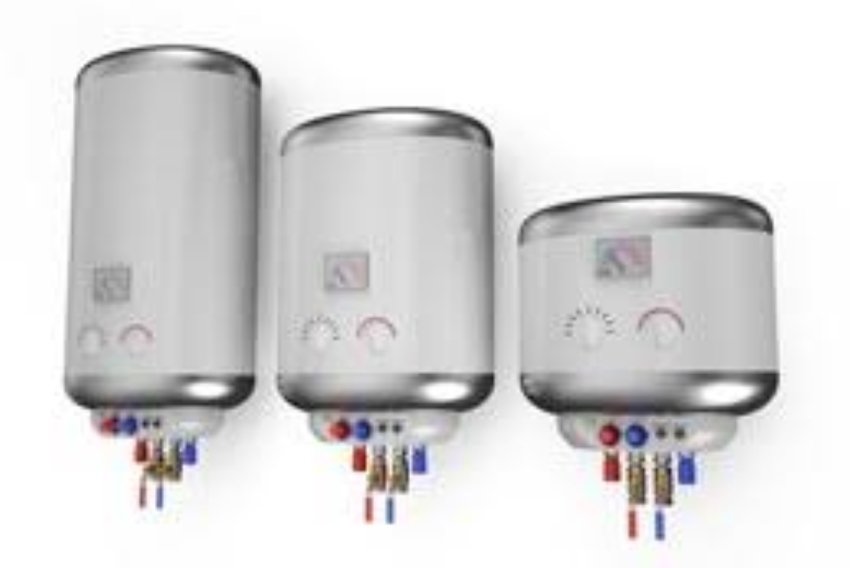
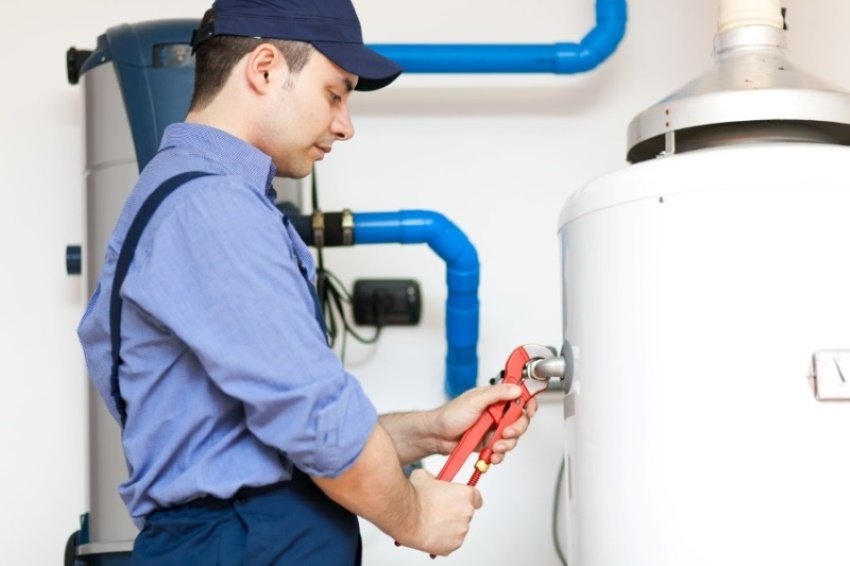
Energy-Efficient Options for Water Heater Replacement
Replacing a water heater offers an excellent opportunity for homeowners to upgrade to energy-efficient models, reducing utility bills and minimizing environmental impact. This topic explores various energy-efficient options for water heater replacement, emphasizing the potential for cost savings and environmental benefits. Here’s how to approach this topic effectively:
1. Introduction to Energy-Efficient Water Heater Replacement:
– Highlight the importance of upgrading to energy-efficient water heaters to reduce energy consumption, lower utility bills, and decrease greenhouse gas emissions.
– Introduce the concept of energy efficiency ratings and certifications, such as Energy Star, to guide homeowners in selecting environmentally friendly options.
2. Tankless (On-Demand) Water Heaters:
– Discuss the benefits of tankless water heaters, which heat water directly as it flows through the unit without the need for a storage tank.
– Highlight their energy efficiency advantages, including on-demand heating, reduced standby heat loss, and longer lifespan compared to traditional storage tank models.
3. Heat Pump Water Heaters:
– Explore the features and benefits of heat pump water heaters, which extract heat from the surrounding air to heat water more efficiently.
– Discuss their high energy efficiency ratings, potential for significant cost savings, and suitability for moderate to warm climates.
4. High-Efficiency Gas Water Heaters:
– Discuss the advancements in high-efficiency gas water heaters, which utilize advanced burner technology and improved insulation to minimize heat loss.
– Highlight their energy-saving features, such as condensing technology and programmable settings, to maximize efficiency and reduce energy waste.
5. Solar Water Heating Systems:
– Explore the benefits of solar water heating systems, which harness the sun’s energy to heat water using solar collectors and storage tanks.
– Discuss their renewable energy source, potential for long-term cost savings, and eligibility for federal and state incentives, such as tax credits and rebates.
6. Hybrid Water Heaters:
– Introduce hybrid water heaters, which combine heat pump technology with traditional electric heating elements to maximize energy efficiency.
– Discuss their dual-mode operation, energy-saving features, and suitability for homes with high hot water demand or limited space for solar panels.
7. Energy Efficiency Ratings and Certifications:
– Explain the importance of energy efficiency ratings, such as Energy Factor (EF) and Uniform Energy Factor (UEF), in evaluating the efficiency of water heaters.
– Encourage homeowners to look for Energy Star certification and other industry standards to ensure optimal energy performance and savings.
8. Cost Analysis and Return on Investment:
– Conduct a cost analysis to compare the upfront costs, installation expenses, and long-term savings of different energy-efficient water heater options.
– Highlight the potential return on investment (ROI) and payback period for upgrading to energy-efficient models, considering factors such as utility rates, usage patterns, and available incentives.
9. Environmental Benefits and Sustainability:
– Discuss the environmental benefits of choosing energy-efficient water heaters, including reduced greenhouse gas emissions, conservation of natural resources, and contribution to sustainability goals.
– Emphasize the role of homeowners in mitigating climate change and protecting the environment through their energy consumption choices.
10. Consultation with Professional Plumbers:
– Recommend consulting with licensed plumbing professionals or contractors specializing in energy-efficient water heater installation and replacement.
– Encourage homeowners to seek expert advice on selecting the most suitable energy-efficient option based on their specific needs, budget, and local conditions.
By exploring “Energy-Efficient Options for Water Heater Replacement” through these dimensions, homeowners can make informed decisions to upgrade to environmentally friendly water heaters that maximize savings, minimize energy consumption, and contribute to a greener future.
Smart Technology Integration in Water Heater Replacement
Integrating smart technology into water heater replacements offers homeowners advanced control, convenience, and energy savings. This topic explores the benefits and considerations of incorporating smart features into new water heaters, highlighting how these innovations enhance user experience and efficiency. Here’s a structured approach to delve into this subject:
1. Introduction to Smart Technology in Water Heater Replacement:
– Introduce the concept of smart water heaters and their ability to connect to home networks, enabling remote monitoring, control, and optimization.
– Highlight the growing trend of integrating smart features into household appliances for enhanced convenience and energy efficiency.
2. Remote Monitoring and Control:
– Discuss the benefits of remote monitoring capabilities that allow homeowners to check the status of their water heater and adjust settings from anywhere using a smartphone app or web portal.
– Highlight the convenience of receiving alerts for issues such as leaks, temperature fluctuations, or malfunctions, enabling timely intervention and preventive maintenance.
3. Customizable Scheduling and Programming:
– Explore the advantages of customizable scheduling and programming options that allow users to set personalized heating schedules based on their daily routines and hot water usage patterns.
– Discuss features such as vacation mode, energy-saving modes, and pre-set schedules for optimizing energy consumption and minimizing standby heat loss.
4. Energy Usage Tracking and Reporting:
– Highlight the importance of energy usage tracking and reporting features that provide homeowners with insights into their water heating habits and efficiency levels.
– Discuss the ability to view historical energy consumption data, track trends, and identify opportunities for energy savings through adjustments in usage patterns or settings.
5. Integration with Smart Home Systems:
– Discuss the benefits of integrating smart water heaters with existing smart home ecosystems, such as Amazon Alexa, Google Assistant, or Apple HomeKit.
– Explore the possibilities for voice control, automation, and interoperability with other connected devices for seamless home management and enhanced user experience.
6. Leak Detection and Prevention:
– Highlight the importance of leak detection and prevention features in smart water heaters, which can help homeowners identify and mitigate water damage risks.
– Discuss the use of sensors, alarms, and automatic shut-off valves to detect leaks, minimize water waste, and prevent costly property damage. In the event of a significant leak or water damage, an emergency plumber can provide immediate assistance to address the issue and prevent further damage.
7. Remote Diagnostics and Maintenance Alerts:
– Discuss the benefits of remote diagnostics capabilities that enable smart water heaters to self-diagnose issues and alert homeowners and service providers to potential problems.
– Highlight the convenience of receiving maintenance alerts and reminders for tasks such as flushing the tank, replacing filters, or scheduling professional inspections. Additionally, having access to an emergency plumber near me ensures that any urgent maintenance needs or unexpected issues can be promptly addressed
8. Enhanced User Interface and Mobile Apps:
– Explore the importance of intuitive user interfaces and user-friendly mobile apps that make it easy for homeowners to monitor, control, and manage their smart water heaters.
– Discuss features such as real-time status updates, interactive dashboards, and troubleshooting guides for quick and efficient problem resolution.
9. Data Security and Privacy Considerations:
– Address concerns about data security and privacy in smart water heater systems, emphasizing the importance of robust encryption, authentication, and access controls.
– Discuss best practices for safeguarding sensitive information and protecting against cybersecurity threats to ensure user confidence and trust.
10. Cost-Benefit Analysis and Return on Investment:
– Conduct a cost-benefit analysis to evaluate the upfront costs, installation expenses, and long-term savings associated with smart water heater replacements.
– Highlight the potential return on investment (ROI) from energy savings, reduced maintenance costs, and enhanced user experience, considering factors such as utility rates, usage patterns, and available incentives.
By exploring “Smart Technology Integration in Water Heater Replacement” through these dimensions, homeowners can gain a deeper understanding of the benefits and considerations associated with upgrading to smart water heaters, empowering them to make informed decisions that enhance control, convenience, and efficiency in their homes.
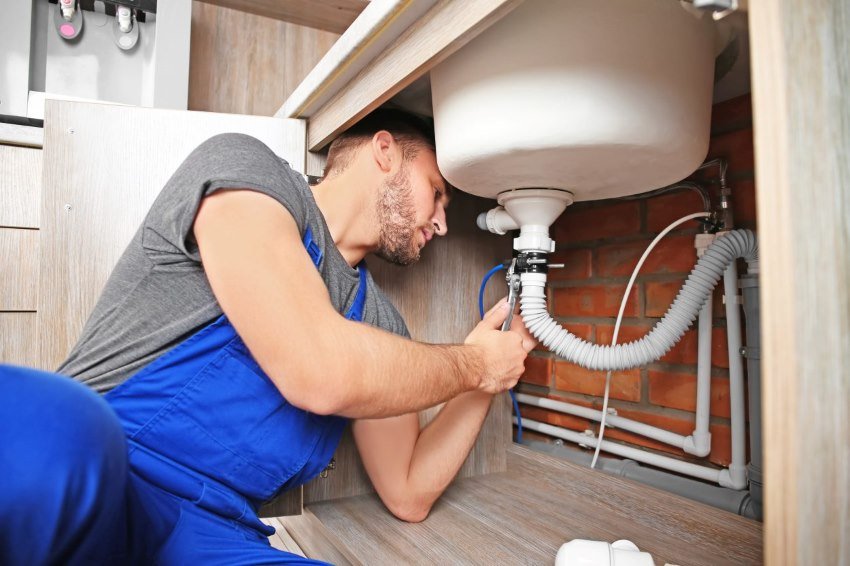
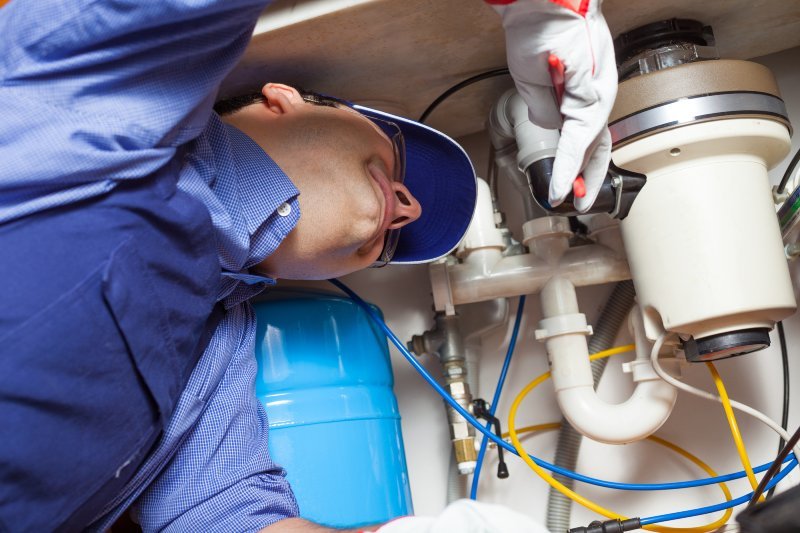
DIY vs. Professional Installation: Pros and Cons of Different Approaches for Water Heater Replacement
Deciding between DIY installation and hiring a professional for water heater replacement involves weighing various factors, including technical expertise, safety considerations, and cost-effectiveness. This topic explores the advantages and disadvantages of both approaches to help homeowners make informed decisions based on their skills, resources, and preferences. Here’s a structured approach to examine this subject:
1. Introduction to Water Heater Replacement Options:
– Introduce the two primary approaches to water heater replacement: DIY installation and professional installation.
– Highlight the importance of considering factors such as technical proficiency, safety requirements, and budget constraints when choosing between these options.
2. DIY Installation:
– Discuss the advantages of DIY installation for homeowners who possess the necessary skills, tools, and confidence to tackle the project themselves.
– Highlight potential benefits such as cost savings, flexibility in scheduling, and the satisfaction of completing a home improvement project independently.
3. Pros of DIY Installation:
– Cost Savings: Avoid labor costs associated with hiring a professional plumber, potentially saving hundreds of dollars on installation expenses.
– Flexibility and Convenience: Work at your own pace and schedule, without relying on external contractors or service providers.
– Personal Satisfaction: Gain a sense of accomplishment and pride from successfully completing a DIY project and learning new skills in the process.
– Customization Options: Have full control over the installation process and make adjustments or modifications according to personal preferences or specific requirements.
4. Cons of DIY Installation:
– Technical Complexity: Water heater installation can be complex, requiring knowledge of plumbing systems, electrical wiring, and safety regulations.
– Safety Risks: Mishandling of water heaters can lead to injuries, property damage, or safety hazards such as gas leaks or electrical shocks.
– Warranty Voidance: Improper installation may void the manufacturer’s warranty, leaving homeowners responsible for repair costs or replacement expenses.
– Potential for Errors: Inexperienced DIYers may make mistakes or overlook critical steps, resulting in leaks, performance issues, or code violations.
5. Professional Installation:
– Discuss the advantages of hiring a professional plumber or contractor to handle water heater replacement, particularly for homeowners lacking the necessary skills or experience.
– Highlight potential benefits such as expertise, efficiency, and peace of mind knowing the job is done correctly.
6. Pros of Professional Installation:
– Expertise and Experience: Professional plumbers close to me have the knowledge, skills, and experience to ensure proper installation and compliance with building codes and safety standards.
– Time Savings: Professionals can complete the installation more quickly and efficiently than DIYers, minimizing downtime and inconvenience.
– Warranty Protection: Professional installation typically comes with warranty coverage, providing added protection and peace of mind against defects or installation errors.
– Safety Assurance: Trained professionals prioritize safety and follow industry best practices to minimize risks of accidents, leaks, or other hazards.
7. Cons of Professional Installation:
– Higher Cost: Hiring a professional plumber involves additional expenses for labor, which can significantly increase the total cost of water heater replacement.
– Dependence on Scheduling: Homeowners may need to coordinate with plumbers’ availability and schedule appointments, potentially causing delays or inconvenience.
– Limited Control: Homeowners relinquish control over the installation process and must trust the expertise and judgment of the hired professionals.
8. Considerations for Decision-Making:
– Discuss key considerations for homeowners when deciding between DIY and professional installation, including budget constraints, technical proficiency, safety concerns, and time constraints.
– Encourage homeowners to assess their skills, resources, and comfort level with DIY projects, as well as the complexity of the installation task, before making a decision.
9. Hybrid Approach:
– Explore the possibility of a hybrid approach, where homeowners perform certain tasks themselves (e.g., preparation, removal of old unit) and hire professionals for specialized or critical aspects of the installation (e.g., plumbing connections, electrical wiring).
– Highlight the potential benefits of combining DIY efforts with professional expertise to achieve cost savings, efficiency, and quality results.
10. Final Considerations and Recommendations:
– Offer final considerations and recommendations based on individual circumstances, emphasizing the importance of safety, compliance, and quality in water heater replacement projects.
– Encourage homeowners to weigh the pros and cons of DIY and professional installation carefully and choose the approach that best suits their needs, preferences, and capabilities.
By exploring “DIY vs. Professional Installation” through these dimensions, homeowners can make informed decisions about water heater replacement, balancing factors such as cost, expertise, safety, and convenience to achieve successful outcomes and long-term satisfaction with their investment.
Maintenance Tips for Prolonging the Lifespan of Your New Water Heater Replacement
After investing in a new water heater replacement, it’s crucial to implement regular maintenance practices to ensure optimal performance and longevity. This topic provides homeowners with practical tips and guidelines for maintaining their water heaters, minimizing wear and tear, and extending their lifespan. Here’s how to structure this subject effectively:
1. Introduction to Water Heater Maintenance:
– Emphasize the importance of regular maintenance in prolonging the lifespan of a new water heater replacement.
– Introduce the key maintenance tasks and best practices homeowners can implement to keep their water heaters operating efficiently.
2. Flush the Tank Annually:
– Explain the importance of flushing the water heater tank annually to remove sediment buildup, which can affect heating efficiency and lead to corrosion.
– Provide step-by-step instructions for flushing the tank, including turning off the power or gas supply, connecting a garden hose to the drain valve, and draining the tank until the water runs clear.
3. Check the Pressure Relief Valve:
– Highlight the significance of the pressure relief valve in preventing excessive pressure buildup inside the water heater tank.
– Encourage homeowners to test the valve periodically by lifting the lever and allowing water to discharge, ensuring it operates smoothly and effectively.
4. Inspect for Leaks and Corrosion:
– Stress the importance of regularly inspecting the water heater for signs of leaks, corrosion, or rust, which can indicate potential issues and compromise performance.
– Encourage homeowners to visually inspect the tank, connections, and fittings for any signs of moisture or corrosion, addressing issues promptly to prevent further damage.
5. Check the Anode Rod:
– Explain the role of the anode rod in protecting the water heater tank from corrosion by attracting corrosive elements.
– Recommend checking the condition of the anode rod annually and replacing it if it shows signs of corrosion or depletion to maintain tank integrity.
6. Monitor Temperature Settings:
– Discuss the importance of setting the water heater’s temperature to a safe and energy-efficient level (typically around 120 degrees Fahrenheit or 49 degrees Celsius).
– Advise homeowners to periodically check and adjust the temperature settings as needed to ensure optimal comfort and efficiency while minimizing energy consumption.
7. Insulate Hot Water Pipes:
– Suggest insulating hot water pipes to reduce heat loss during distribution, improve energy efficiency, and prevent freezing in cold climates.
– Provide guidance on selecting and installing pipe insulation sleeves or wraps to cover exposed pipes and minimize heat transfer.
8. Maintain Adequate Ventilation:
– Highlight the importance of proper ventilation for gas water heaters to ensure safe operation and prevent the accumulation of combustion byproducts.
– Recommend checking the venting system regularly for obstructions or blockages and ensuring adequate airflow around the water heater.
9. Schedule Professional Inspections:
– Encourage homeowners to schedule annual professional inspections and maintenance checks with a licensed plumber or HVAC technician.
– Stress the importance of professional expertise in identifying potential issues, performing safety checks, and conducting preventive maintenance to prolong the lifespan of the water heater.
10. Keep Records and Documentation:
– Advise homeowners to keep detailed records and documentation of maintenance activities, inspections, and repairs related to their water heater.
– Recommend creating a maintenance log or schedule to track maintenance tasks and ensure they are performed regularly and consistently.
By following these maintenance tips, homeowners can proactively care for their new water heater replacement, optimize its performance, and maximize its lifespan, ensuring years of reliable hot water supply and energy efficiency.
Reach Us
CMK Plumber Georgetown
Hours of Operation
Mon Open 24 hours
Tue Open 24 hours
Wed Open 24 hours
Thu Open 24 hours
Fri Open 24 hours
Sat Open 24 hours
Sun Open 24 hours
